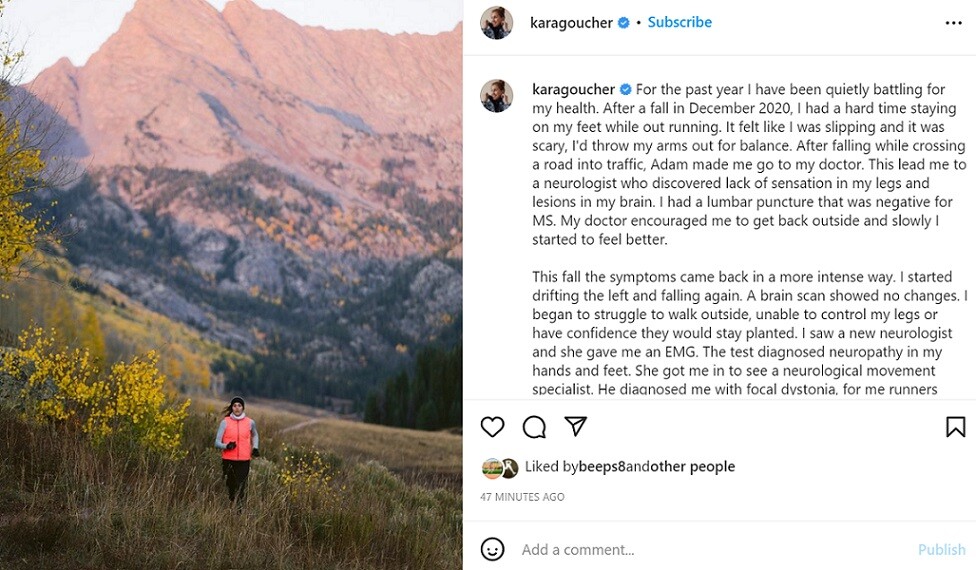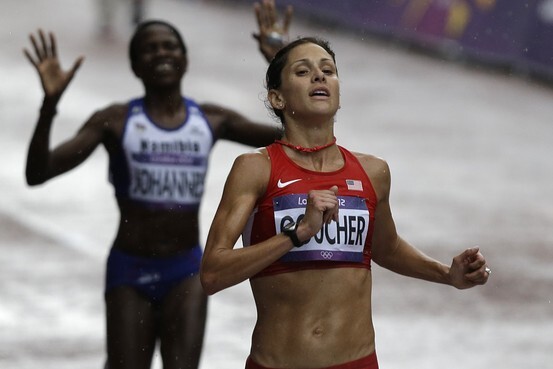Running News Daily
Running News Daily is edited by Bob Anderson. Send your news items to bob@mybestruns.com Advertising opportunities available. Train the Kenyan Way at KATA Kenya and Portugal owned and operated by Bob Anderson. Be sure to catch our movie A Long Run the movie KATA Running Camps and KATA Potato Farms - 31 now open in Kenya! https://kata.ke/
Index to Daily Posts · Sign Up For Updates · Run The World Feed
Kara Goucher has been diagnosed with neurological disorder
The running community was shocked on Tuesday when Kara Goucher, one of America’s most accomplished distance runners, announced that she will no longer be able to participate in the sport she loves. The two-time Olympian explained in an Instagram post that she had been diagnosed with repetitive exercise dystonia and that if she did not drastically cut back on her running, she’d not only risk losing her ability to run, but even to walk.
“This past week I was a patient in the neurology department at the Mayo Clinic,” Goucher said in her post. “The doctor confirmed repetitive exercise dystonia, and tried to tell me, as gently as possible, that the more I run the worse my symptoms will get. I have to drastically cut back or not only will I lose the ability to run at all, I will struggle to walk as well.”
A dystonia is a disorder characterized by involuntary muscle contractions, which can affect only one muscle, groups of muscles or muscles throughout the body. Although they are very rare, they can result from overuse or repetitive stress and tend to affect musicians and sometimes athletes.

Initially, symptoms (like a foot cramp or a tendency for one foot to turn or drag, a worsening in handwriting after writing several lines or difficulty speaking) may be very mild and only occur after prolonged exertion. Over time, they can get worse or more widespread, or not they may not progress at all.
Unfortunately, medical professionals don’t know exactly what causes dystonia and there is currently no cure, but there are some treatments available to help lessen some of the symptoms. Physiotherapy can also help affected individuals deal with or lessen their symptoms. Goucher said in her post that she had started on some medication that was helping with her symptoms.

Unfortunately, medical professionals don’t know exactly what causes dystonia and there is currently no cure, but there are some treatments available to help lessen some of the symptoms.
Physiotherapy can also help affected individuals deal with or lessen their symptoms. Goucher said in her post that she had started on some medication that was helping with her symptoms.
by Brittany Hambleton
Login to leave a comment




